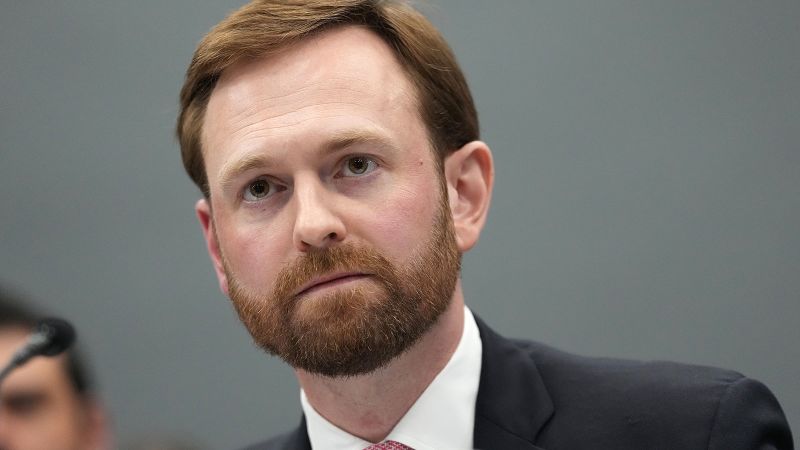The Federal Trade Commission (FTC) has recently taken a keen interest in the practices of Media Matters for America, a progressive media watchdog. On a Wednesday in May, the commission sent a formal notification to Media Matters, requiring it to provide communications with various advertising entities. This inquiry stems from an investigation aimed at uncovering whether Media Matters has engaged in collusion with advertisers to orchestrate funding withdrawals from Elon Musk’s social media platform, X, formerly known as Twitter. The FTC’s outreach reflects a significant escalation in scrutiny over the relationships between media watchdogs and advertisers, raising questions about the potential influence of advocacy groups on commercial advertising decisions.
The communication from the FTC, which was dated May 20, outlined a broad request for Media Matters to submit a range of documents, materials, and communications associated with advertising organizations. This includes notable entities such as the World Federation of Advertisers and the Global Alliance for Responsible Media. Sources familiar with the letter indicated it specifically seeks information related to topics of brand safety and disinformation, crucial factors in the current digital advertising landscape. The vagueness of the request suggests the FTC is attempting to explore various angles as it probes into the nexus between Media Matters and the advertising world.
Media Matters positions itself as a watchdog that rigorously monitors conservative and far-right media outlets, aiming to maintain accountability among these platforms. However, its relationship with Musk’s X took a contentious turn in 2023 when Musk launched a lawsuit against the organization. This suit arose after Media Matters published a report highlighting the presence of antisemitic and pro-Nazi content proliferating on X. Musk’s lawsuit alleges that Media Matters designed a strategy to drive advertisers away from the platform, branding it as part of a broader agenda to undermine his company, X Corp.
As the FTC initiates its investigation, observers recognize the implications behind the commission’s approach. Describing the FTC’s inquiry as akin to “throwing the kitchen sink at the wall to see what sticks,” insiders suggested that the commission aimed to gather extensive evidence that could substantiate claims of collusion or other improper activities. Notably, FTC Chairman Andrew Ferguson has previously emphasized the importance of addressing any unlawful collusion between online platforms and confronting advertising boycotts that might stifle competition among media entities.
Musk has frequently accused Media Matters of inciting a coordinated retreat of advertisers from X due to the reports it publishes, which he contends negatively portray his platform. In a Thursday statement, Media Matters president Angelo Carusone criticized what he perceives as the misuse of governmental authority to repress political adversaries and silence critics. Carusone highlighted that Media Matters has previously held the same figures accountable for their actions, reaffirming the organization’s commitment to its mission despite facing pressures from higher authorities.
As the advertising landscape continues to shift dramatically, advertisers indicate a record desire to diminish their ad expenditure on X. Concerns regarding the extreme content that has flooded the platform since Musk’s acquisition in 2022 have raised alarms about brand safety. Musk himself has encouraged advertisers who chose to leave, infamously stating they might “go f**k yourself.” Many advertisers began vacating the platform not long after Musk took the reins, visibly reacting to the substantial layoffs and reforms in content moderation practices.
Despite the ongoing exodus, Musk remains proactive in his efforts to regain advertiser trust, embarking on a charm offensive to bring advertisers back. Interestingly, he has also initiated legal action against the Global Alliance for Responsible Media, marking a significant confrontation with the advertising industry’s voluntary initiatives targeting accountability and ethical practices. His confrontational stance grew more expansive as he sought to include major brands such as Lego and Nestlé in his lawsuit, claiming coordinated efforts aimed against X.
In light of these developments, a motion was filed by advertisers mentioned in Musk’s lawsuit, aiming to dismiss it based on allegations that Musk seeks to reclaim lost business from X competently during a turbulent time in the market. Furthermore, Media Matters is not new to legal conflicts, having previously sued Texas Attorney General Ken Paxton in a First Amendment case concerning investigations into its reporting on Musk’s app.
The unfolding narrative draws attention to the tension between corporate media interests and advocacy groups in the digital age, where questions of free expression, advertising integrity, and platform governance intersect. As the FTC continues its inquiry, all parties involved will likely remain under scrutiny, revealing deeper insights into the complex interplay between pressure groups, advertisers, and digital platforms.



